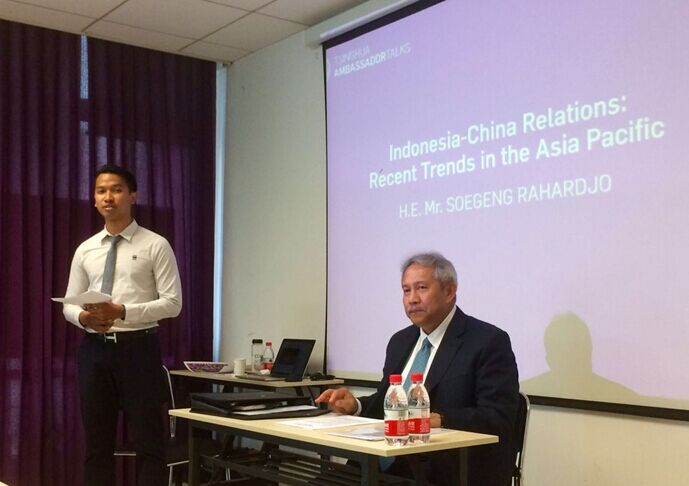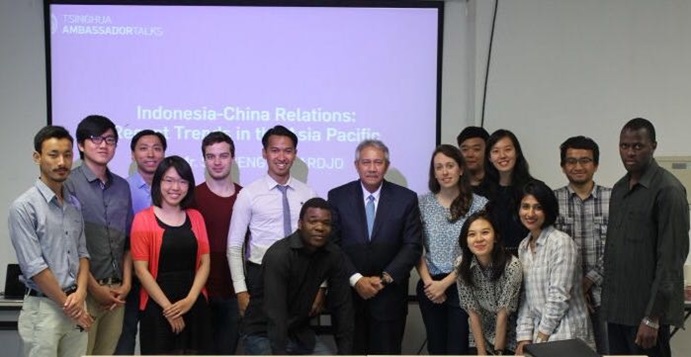June 1, 2016
The 20th instalment of Tsinghua Ambassador Talks welcomed H.E. Mr. Soegeng Rahardjo, Ambassador of Indonesia to P.R. China, to give a talk on Indonesia-China relations and recent trends in the Asia Pacific.

Ambassador Rahardjo opened the event by giving a short introduction of his country, an archipelago consisting of 17,000 islands, located at the crossroad of world’s busiest sea lane. With its 254 million strong population, Indonesia is one of the world’s biggest markets and has abundant workforce, with more than half of its population under the age of 30.
Mr. Rahardjo underlined the importance of regional cooperation in Asia in order to maintain stability and peace. Being the one of the region’s biggest economy, Indonesia acts as a de facto leader in ASEAN. Through ASEAN, many South East Asian countries can pool up their resources and create a forum for a dialogue to address bilateral or multilateral problems. He firmly believes that any international issue should be solved not by force, but by dialogue and cooperation. For this reason, countries shall step up their people-to-people exchange initiative to boost solidarity and mutual understanding.
The Ambassador also shared his experience from a forum held recently in Shanghai, in which he highlighted the dawn of the Asian century. Aware of its growing potential and influence, many developed countries are now looking to the East to seek to benefit from the rise of the Asian countries. He noted that students from Asia should be more aware of this development and prepare themselves accordingly.
During the Q&A session the Ambassador addressed a question on the recent fishing trawler incident with China in the territorial waters of Natuna island, a hotspot between Indonesia and China in the South China Sea dispute. He emphasized the importance in separating between a common fishery problem and territorial integrity claim. To another question on the increasing global terrorism, he underscored the need for a multilateral cooperation as no country can deal with the issue on the own.
